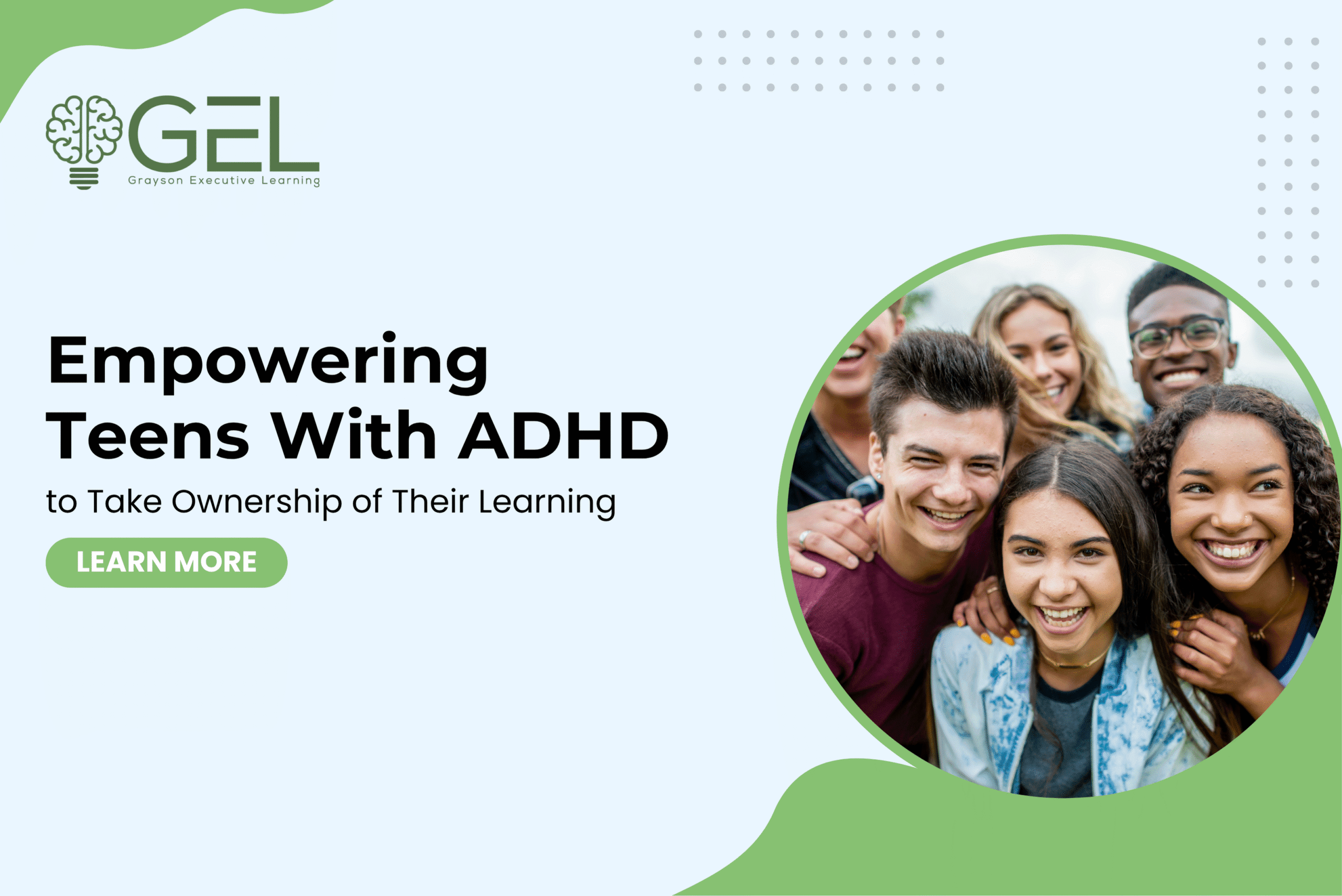Teens with ADHD often hear what they are doing wrong more than what they are capable of doing right. They may forget assignments, lose track of time, or struggle with motivation. But with the right support, these same teens can become confident, independent learners who take ownership of their education and goals.
This blog will explore why self-management is difficult for teens with ADHD, how executive function plays a role, and what strategies help them build lasting habits of ownership, motivation, and academic resilience.
Understanding the ADHD Learning Experience
ADHD affects more than just attention. It impacts executive function, the set of brain skills responsible for planning, organizing, starting tasks, regulating emotions, and following through. Teens with ADHD may:
- Avoid starting difficult tasks
- Struggle to track long-term assignments
- Lose materials or forget what they studied
- Become overwhelmed and shut down under pressure
These challenges are not a matter of effort or intelligence. They are symptoms of a brain that processes time, motivation, and rewards differently.
Why Ownership Matters
When teens feel like school is something being done to them instead of by them, motivation fades. But when they understand how they learn, set their own goals, and feel in control of the process, everything changes. Ownership builds confidence and accountability.
According to research from CHADD and the Center on the Developing Child at Harvard, helping students with ADHD build autonomy and decision-making skills leads to stronger academic performance and long-term success.
Shift From External to Internal Motivation
Instead of using rewards or consequences to drive behavior, focus on helping your teen connect schoolwork to their own goals. Ask:
- What do you want to be proud of at the end of this semester?
- How will this class help with your future goals?
- What personal win would make this week feel successful?
When teens define their own reasons for learning, motivation becomes more sustainable.
Teach Time Awareness and Planning
Many teens with ADHD struggle to feel how much time is passing. This makes planning difficult. Tools that help include:
- Visual schedules or planners
- Timers or countdown clocks
- Breaking long-term projects into mini deadlines
Review the week together every Sunday to map out tasks and priorities. This teaches your teen to think ahead and prepare.
Build Consistent Routines That Reduce Stress
A routine removes the guesswork from daily decisions. Help your teen develop routines for:
- Homework time and location
- Morning and bedtime
- Study breaks and transitions
Start small. Even one consistent habit, like reviewing assignments after school, can create a sense of structure and control.
Practice Self-Advocacy Skills
Teens with ADHD often benefit from accommodations, but they may feel embarrassed to ask for help. Role-play conversations with teachers:
- “Can I check in after class for help on the assignment?”
- “Would I be allowed to use extra time on this test?”
- “I get distracted easily. Can I sit near the front?”
Self-advocacy builds confidence and helps teens feel in charge of their learning environment.
Focus on Process Over Perfection
Instead of only praising good grades, highlight effort and problem-solving. Say:
- “I noticed you started early this time. That made a big difference.”
- “You stayed with that reading even when it was hard.”
- “You asked for help. That shows maturity.”
This mindset encourages progress, resilience, and ownership of the learning journey.
Make Space for Reflection
Build in moments where your teen can reflect on what is working and what is not. Use prompts like:
- What helped you stay on track this week?
- What got in the way of your focus?
- What strategy do you want to try next?
Reflection builds metacognition, the ability to think about thinking, which is essential for long-term growth.
Encourage Choice and Autonomy
Where possible, let your teen make decisions about their learning. For example:
- Choose the order they complete homework
- Pick their study environment
- Decide how to prepare for a test
Even small choices help them feel empowered and responsible.
Final Thoughts: Ownership Takes Practice
Teens with ADHD are more than capable of becoming independent learners. They just need the right tools, guidance, and encouragement to get there. When parents focus on building systems, reinforcing effort, and supporting autonomy, teens can take ownership of their learning and thrive inside and outside the classroom.
How Grayson Executive Learning Helps Teens With ADHD Succeed
Grayson Executive Learning (GEL) is a boutique Academic and ADHD/Executive Function Coaching practice that specializes in providing premium one-on-one academic coaching services to high school and college students with ADHD and executive function difficulties.
Click here to learn how we can help your student truly reach their academic potential while developing critical life and independence skills.
We look forward to serving you.


